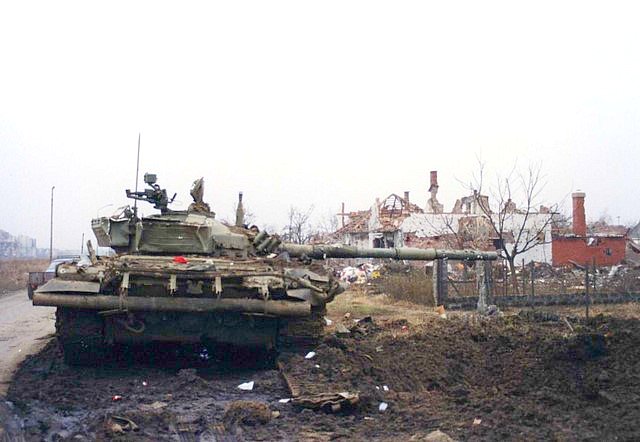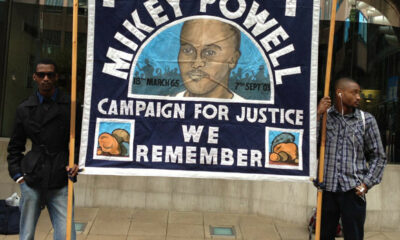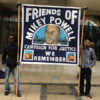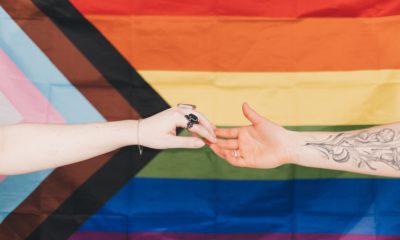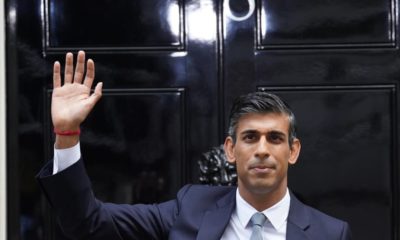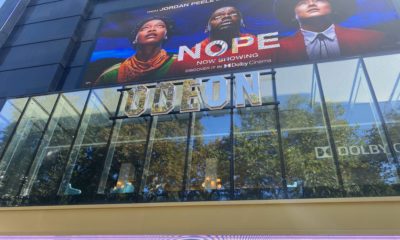History
Leaving home to find home – A real story of the Balkan wars
What happens when home is the most dangerous place to be?
“I was taken at 3 o’clock in the morning, everywhere was surrounded, I couldn’t ask why”. From the day Bekim was forced to leave his home in Pristina to fight for the Yugoslav National Army (YNA) his life changed, his dreams were ripped away from him. However, this night didn’t come without warning. Bekim’s mother woke him, “She told me there are two police or army men, I’ve never seen them before, asking for you” that is when he knew. He didn’t need her to say anything else. Bekim and his father had watched control grow over the Albanians in Kosovo. “Every single night me and my father would watch parliament on TV, we could see it was coming.”
Yugoslavia was synonymous with unity under Tito’s rule, achieved via a strict regime that crushed any sign of national or religious superiority. Tito’s death in May 1980 created great financial trouble and less focus on togetherness. The republics that made up Yugoslavia were now rife with nationalism.
In 1977, Bekim’s family moved to Pristina, after he spent his childhood in Goraždevac, a small village located about 5 miles from Peja, his birthplace. “I had a good childhood in the countryside”. However, as Bekim grew older, tension only ever increased, as did his awareness of it, “We felt like second class citizens”. Ethnic tension grew in Tito’s absence, and when Slobodan Milošević became leader of Serbia in 1986 he was uncomfortable with Kosovo. “In 1989 parliament took our autonomy, there were protests, miners strikes and hunger strikes”, unfortunately for Bekim, the situation deteriorated further. “We had a curfew, from 8PM until 6AM. It wasn’t the sort of curfew you’d find in a democratic country, if they saw you on the street they would shoot you”. In practice, the curfew had a clear bias, “The law was for everyone, but we could see Serbian’s moving freely, nothing happened to them.” Other republics criticised Milošević’s actions, breaking point was imminent.
Serbia advocated for the centralisation of Yugoslavia whilst Slovenia and Croatia both held referendums on independence. “Parliament dissolved, giving the power to the army, at that point war felt inevitable” On the 25th of June, 1991, the YNA invaded Slovenia. However, attention swiftly turned to Croatia, where over 500,000 Serbian’s resided. Rebel Serbian’s who felt threatened were promptly backed by the YNA, receiving arms. “I was mobilised by the YNA in 1991, after the war in Slovenia”. The YNA didn’t want Croatia to become independent. “I could have escaped, but I decided against it because the military police might have done something to my family”. Bekim had completed compulsory military service in 1988, he was deemed ‘ready’.
“We went to the military base outside of Pristina. They told me we have to save Yugoslavia”. More innocent young men arrived, just like Bekim, each with their own aspirations, their own lives. Twenty boys were transported to Niš, Serbia to a larger YNA base where they were given arms and a uniform. “We were all divided between 2500 Serbian boys. I was on my own with forty-five Serbian’s in one room”. The conditions were intimidating, “That night they got drunk and started talking about how they are going to take over Croatia, and then kill all of the Albanians. I was pretending that I was one of them”. Bekim was moved to the mountains for training, near the border of Croatia. “We were preparing to invade”. The propaganda grew stronger to galvanise the young soldiers. “Everyday a general would visit us, we even met Ratko Mladić”. Bekim started building the courage to escape. “I never wanted to go to war. The moment I decided to escape was when I saw the priests of the orthodox Church getting ready to fight. I noticed something bigger was happening, the hate was growing. It was very scary”. The sounds of war pierced through the forest from the battlefield, “We could hear fighting, bombs, gunfire and I saw the casualties, people dying. I was 19”. The time had come to take action. “I didn’t sleep at all for the four days that I was gone, maybe it was fear, maybe adrenaline. I knew that I had to do something“.
So Bekim escaped.
“We had a one hour break after lunch, I left my arms and I began to run through the forest”. The decision was incredibly risky. “One of the guards saw me and shouted, wondering where I was going. I said tomorrow we are leaving for Croatia, I live nearby and I want to say goodbye to my family, then I’ll come back. He believed me and let me out”. With a close call behind him, Bekim persevered. “It took me a couple of hours until I found the motorway. I didn’t know where I was going, I had nothing”. Bekim’s fate was out of his hands. “There were no cars. I didn’t know where I needed to go, my idea was to just get to any city.” A solitary car got closer, “I hailed the car, and luckily he stopped.” In his military uniform Bekim was conspicuous. “Tomorrow we are going to Croatia, I need you to take me to the first city”. A pause followed. “He told me I was lucky as he was going to Niš”. Naturally the topic of war arose. “He was quite a radical Serb, he started to talk about how Serbia can defeat anybody. I didn’t want to talk too much, my blood was boiling listening to him”. After arriving in Niš, he headed to Pristina by train. “In Podujevo I found a phone to call home. I asked to speak to my brother. I told him to bring my passport, money and a change of clothes. When I arrived in Pristina he had it all. I knew I had to leave the country.” That night, Bekim stayed with a friends uncle, time wasn’t on his side. “The day after I got a taxi to Peja, and from there I went to my Aunty in Montenegro. I called my mum and dad to tell them, they were so scared. If I didn’t move quickly, I would have been found and killed. My Aunty told me to go to Germany, I had an uncle there.” In Bekim’s wake was everything he had ever known. He was stepping into a new life. “I went from Montenegro via Sarajevo to Slovenia. My uncle from Germany came to pick me up, and we arrived in Germany via Austria”. Whilst Bekim was fleeing, his fears of the YNA looking for him were realised. “The police came to my house and took my brother, he was beaten up. For 2 days he couldn’t stand.”
In two weeks, Bekim’s life changed forever. “My whole family were moved to the border at Macedonia in a camp, they were almost dying. Germany helped us.” In Germany though Bekim’s life was tough. As a teenager studying law he had dreamed big, now his life was different, he had no say. “I didn’t have the right to work. I worked as a waiter, I learnt German, I wanted to do things the right way but they didn’t recognise it.” A few years later, Bekim moved to London, his current home. He has a family, a job and a new life. “My home will always be Pristina, but London has been very good to me. I’m very grateful to this country, they helped me and they helped Kosovo.”


